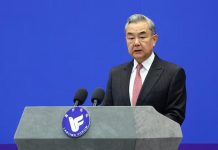Africa-Press – Kenya. Kenyans may soon buy essential goods at fixed prices if amendments to the Price Control (Essential Good) Regulations sail through Parliament.
The Essential Goods Amendment Bill 2024 seeks to introduce changes that will see the National Treasury regulate the prices of essential commodities to ensure their affordability and availability, particularly for low-income Kenyans.
The Price Control Bill empowers the National Treasury Cabinet Secretary to set minimum and maximum prices for essential goods such as maize, wheat, rice, cooking fat, sugar, and certain pharmaceutical drugs.
The government has in the past used subsidies to control the price of essential commodities like fuel and maize floor, but in such instances petrol firms and millers were compensated to main the prices within the desired range.
The proposed amendment by nominated Senator Tabitha Mutinda seeks to prevent essential goods and services from becoming unaffordable to the public.
The Bill seeks to amend the Price Control (Essential Goods) Act, 2011 to regulate the prices of essential commodities in order to secure their availability at reasonable prices.
The Bill grants the national Treasury Cabinet secretary the powers to declare any goods as essential, set their prices, and determine applicable categories and timeframes for price control.
“The Cabinet Secretary may, from time to time, by order in the Gazette fix the maximum and minimum retail and wholesale prices to stabilise costs of essential goods in order to ensure that the cost of living remains manageable for the public,” reads the proposed amendment.
It further notes that the move is meant to prevent sudden variations in price of essential goods that may lead to a decrease in purchasing power and a decline in overall consumer welfare.
“To prevent market actors such as monopolies and oligopolies from exploiting their dominant position to artificially inflate prices and take advantage of consumers’ lack of alternatives,” the amendment reads.
In the changes, prices will be established based on costs, market conditions, and the significance of goods for economic development, with a focus on minimal restrictions on competition and consideration of environmental and health requirements.
To oversee these measures, a Price Control Unit will be established within the Ministry, headed by a Director of Price Control.
This unit will monitor compliance, analyse pricing trends, and enforce price control directives.
It will also collaborate with other regulatory agencies to prevent market manipulation, engage with stakeholders, and educate the public on price control policies.
The bill further proposes to outlaw the sale of any commodity declared as essential above the maximum price set by the government.
A person who contravenes the provisions commits an offence and is liable to a fine not exceeding one million shillings or to imprisonment for a term not exceeding five years or to both.
For More News And Analysis About Kenya Follow Africa-Press






